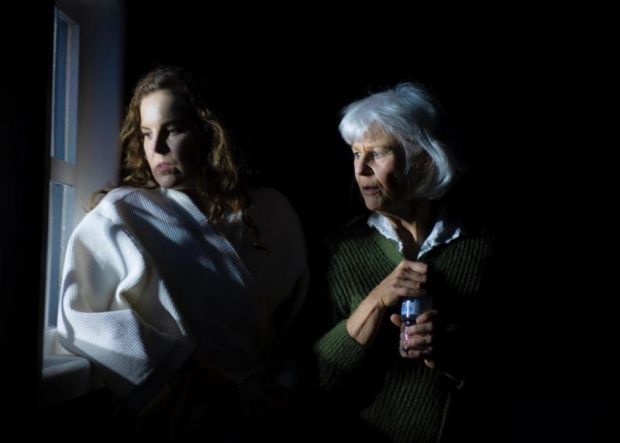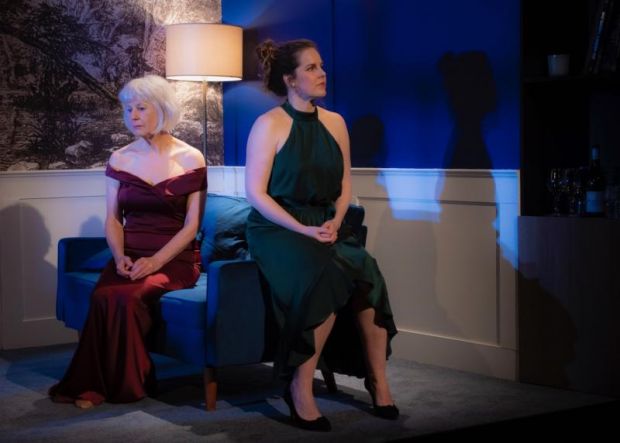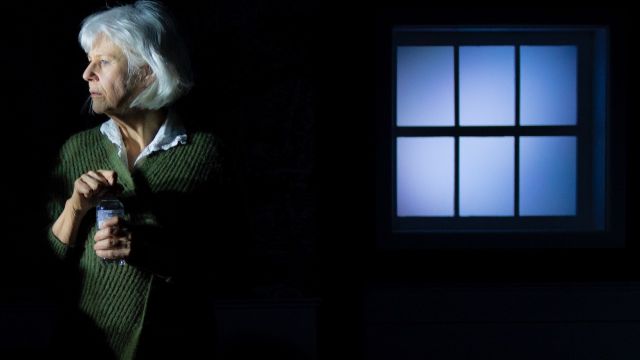Grace
Emma (Kate Cole), blocked writer of fairy tales, is in Copenhagen to receive the Hans Christian Andersen Award for children’s fiction. She’s brought her Mum, Beth (Gillian Murray) along because she thought it would be nice and Beth would enjoy it. She is, of course, wrong. As they look over their luxurious (if claustrophobic) hotel room, we realise Beth is, apparently, an Eeyore, a faultfinder, a contrary old leftie, fearful, and suspicious of just about everything, including this award with which her daughter is about to be honoured. Emma, a shy, rather recessive woman who would much rather live in the world of her imagination, seems helpless, unable to placate her mother.
Kate Cole and Gillian Murray play their bickering characters brilliantly. It is like the very best kind of sit-com. (Playwright Katy Warner has a real talent for this sort of thing, and she’d be a huge asset to any television show writers’ room.) These two wonderful actors attack, retreat, attempt diversion, undermine, rationalise, contradict, and counterattack all with their exquisite comic timing, and create an expectation that more will follow than, unfortunately actually does.

A third and initially mysterious character arrives: the eponymous Grace (Mia Tuco). Casting and Jacob Battista’s and Sophie Woodward’s wardrobe create an immediate and intriguing contrast to Emma and Beth. Grace is small, scruffy, toting a backpack, unsuccessfully hiding nervousness, despite being gushy about why she’s come there. She’s a schoolteacher in Manchester. A nice touch is that a now equally tense Emma tries to elevate Manchester to London, but Grace modestly corrects her.
Tradition has it that such a character should prove a major catalyst. Here, Grace is the bearer of a sad and, for Emma, guilt laden backstory, which emerges piece by piece. It reminded me of the recently adapted Elena Ferrante story, The Lost Daughter, and, as in Ferrante’s story, the reveal of the past is the crux of the thing. Here, however, it is resolved, it seems to me, much too easily. It’s sentimental (but some people like sentimental, I know) as if Ms Warner were determined on a warm and happy ending.

In short, Grace gives us three fine performances, directed by Sarah Goodes, one of the best in the business, but they are in the end let down by the text.
The ‘creatives’ listed in the flyer include three dramaturgs – one of them Ms Goodes – but the play is often unfocussed, and it creates expectations in the audience that are not fulfilled. For instance, Emma does a live television interview in the middle of the night. She’s befuddled and has really nothing to say so she blows a strictly embargoed secret and blurts that the Disney company has bought the rights to all her books. It’s believable: it’s just what Emma would do. But nothing happens. There is a lot of build-up to a lecture that scared Emma must give – but she gives it, off-stage of course, no problem. So, what was the fuss about? When all three are to go to a celebratory banquet, Beth disappears… but returns in time. Dementia? Possibly, but…
Throughout, the way the three women relate and interact per se is well observed and insightful, but there’s a lack of depth. The play needs fewer red herrings and more plot. The potential to explore a powerful story is there.
Michael Brindley
Photographer: Jodie Hutchinson
Subscribe to our E-Newsletter, buy our latest print edition or find a Performing Arts book at Book Nook.

